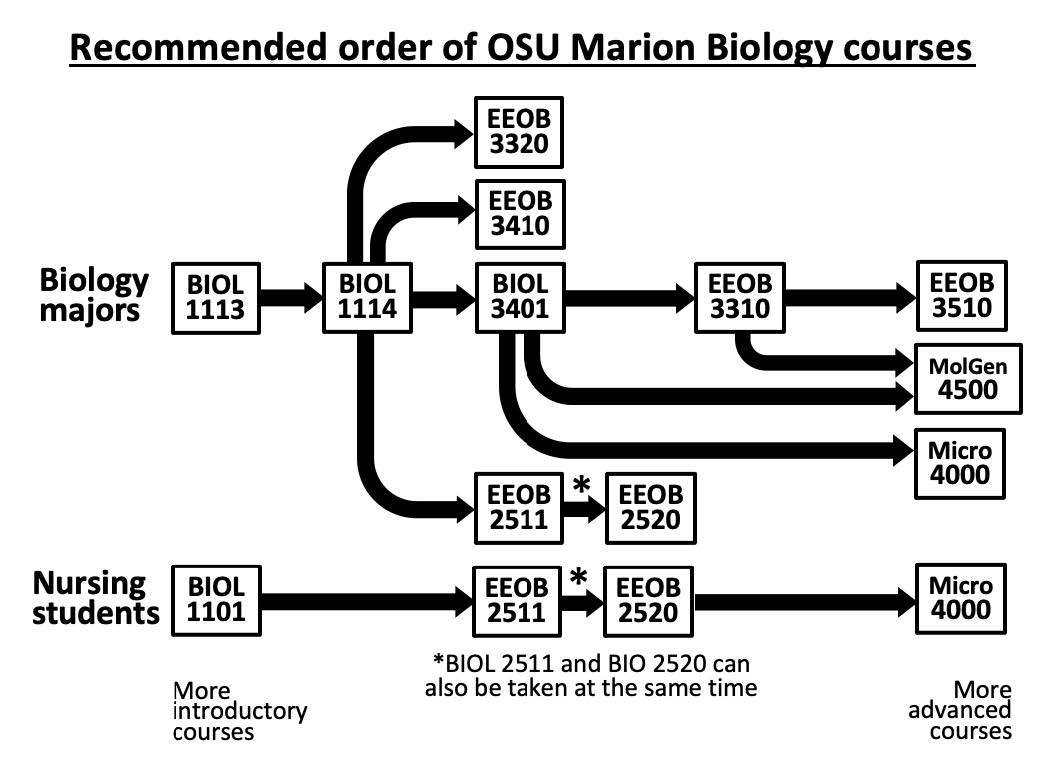Ohio State is in the process of revising websites and program materials to accurately reflect compliance with the law. While this work occurs, language referencing protected class status or other activities prohibited by Ohio Senate Bill 1 may still appear in some places. However, all programs and activities are being administered in compliance with federal and state law.
Biology Majors
The following courses are required for the biology major, however the hours earned are not included in the number of hours required for the major itself. In comparing the BA to the BS in any of the specialization areas of the biology major, the differences lie in the required prerequisite courses.
Click here to see the entire major sample plan.
